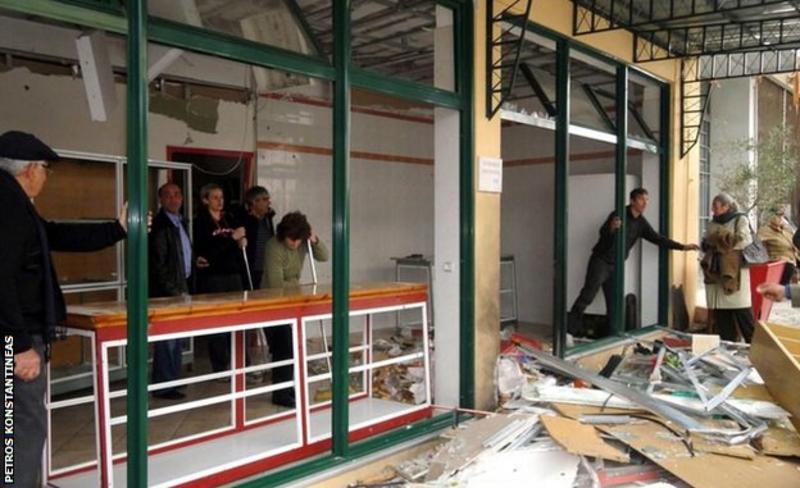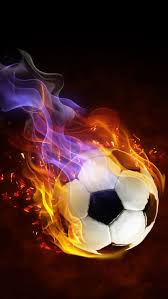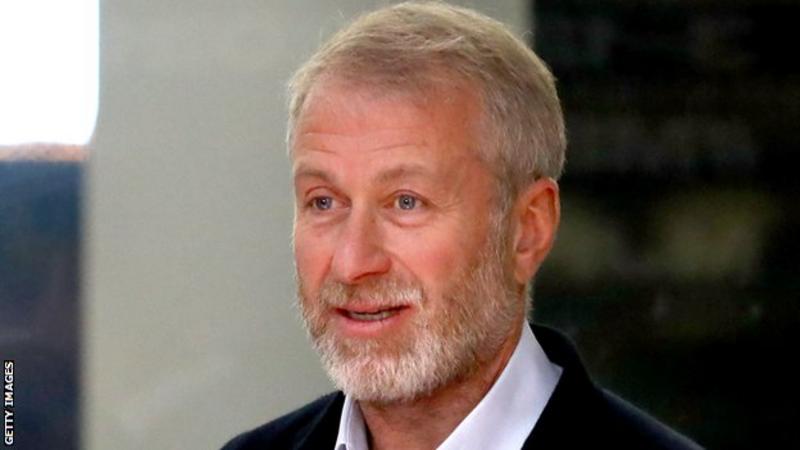On the night of 29 February 2012, a bomb exploded in a bakery in the south of Greece, blowing out the shop windows and destroying part of the store.
Luckily the bakery was empty and no-one was injured. But the owner, Petros Konstantineas, was in no doubt he was the target of the attack.
Konstantineas was a Greek referee in the country’s top flight. When he wasn’t on the pitch he could be found at his bakery – a family business in his hometown of Kalamata, on the Peloponnese peninsula. He enjoyed the work. It was a way to separate himself from the violent world of Greek football. But that world caught up with him.
They insisted that Olympiakos had to win the game, and they threatened me,” he says. “But I have never been part of that system. I cannot be bought.”
Police investigated but there were no arrests made after the explosion. Nobody has been convicted for the attack.
At the end of that 2011-2012 season, Konstantineas retired as a referee. He later moved into politics and from 2015 to 2019 served as a member of parliament with the radical left-wing Syriza party.
“After the explosion I started fearing for my family,” he says. “I had to send my children into hiding. I never expected it to get to that level.”
Almost 10 years later, little has changed in Greek football. Intimidation and violence remain regular features of the country’s not-so-beautiful game.
Just this month, on 1 February, a 19-year-old man was stabbed to death outside the ground of Aris FC, allegedly by supporters of PAOK, who condemned the attack. The two teams are rivals in the northern Greek city of Thessaloniki. Several arrests have been made.
Between these two violent events can be traced a long, messy disintegration in the state of Greek football – and the latest chance for real change seems to have been passed up.
Many thought Theodoros Zagorakis would be the man to solve things. Popular for his glorious past as the captain of Greece’s Euro 2004 triumph, in March 2021 he was elected president of the country’s football association.
Stating his ambition to clean up corruption, Zagorakis, who has been an MEP since 2014, won with 66 votes from 68. But the honeymoon lasted only 165 days. The former Leicester City midfielder announced his resignation on 8 September, apparently disillusioned by the enormity of the task facing him, citing a “toxic atmosphere”.
Greece’s Euro 2004 victory has proved a flash in the pan, an enchanted interlude in an otherwise ugly story. Since the 2000s, the country’s football has been sinking lower and lower. Domestic attendances are poor – the top-flight average is around 5,000 – and many fans feel alienated by what they are seeing. On the pitch, the quality has dropped. Off the pitch there seems to be one scandal after another.
In 2003-04 there were three clubs playing in the Champions League group stage – with two of them there as automatic qualifiers. Now only the Greek champions are entered, and must navigate two qualification rounds to reach the group stage.
Olivier Kapo, a former Birmingham and Wigan midfielder, played for Levadiakos in Greece in 2013-14. He described Greek football as “a total mafia” in an interview with French football magazine So Foot.
“Everything is corrupt,” he said. “Games are bought with sport bets. This stuff doesn’t happen anywhere else. Uefa does not pay attention to Greece. Some matches are played until the 99th minute. The president has bodyguards – do you think that’s normal?” Kapo claimed he was himself asked by match-fixers to deliberately get a red card in a game. He said when he refused they threatened him and his family. He decided to break his contract with his club so he could leave as soon as possible.
There have been several attempts to clean things up.
The last big case came to light in 2015, spearheaded by prosecutor Aristidis Korreas. His 173-page report detailed the alleged activity of dozens of major protagonists who faced charges of “initiating, participating in and directing a criminal organisation, fraud, attempted criminal extortion and corruption.
Korreas investigated many of the most senior and important figures in Greek football, using telephone tapping in tandem with the Greek intelligence services to gather evidence. He believed he had unveiled a powerful conspiracy that sought to control results through the actions of corrupt referees.
Six years later in January 2021, 28 key figures, including the Olympiakos and Nottingham Forest president Evangelos Marinakis, several referees, and several members of the Greek FA were acquitted of all charges.
the meantime, as the court cases dragged on, the violence continued.
The 2014-15 season was suspended three times. A 46-year-old man, Kostas Katsoulis, was killed after fans clashed at a third division match in Crete. The vice-president of the central referees committee was attacked. Hooligans invaded the pitch during a derby match between Panathinaikos and Olympiakos.
In March 2018, unhappy with a referee’s decision to disallow what would have been a late winning goal in a crucial match against AEK Athens, PAOK president Ivan Savvidis entered the pitch carrying a holstered gun. The league was suspended once more. Savvidis, a Greek-Russian tobacco magnate who served in government as a member of Vladimir Putin’s United Russia party, apologised. He was fined and his team docked points.
If you liked this article, then please join our WhatsApp Group for More tutorials. You can also find us on Twitter and Facebook.
Disclaimer: Contents provided and/or opinions expressed here do not reflect the opinions of The Charity Reporters or any employee thereof.





